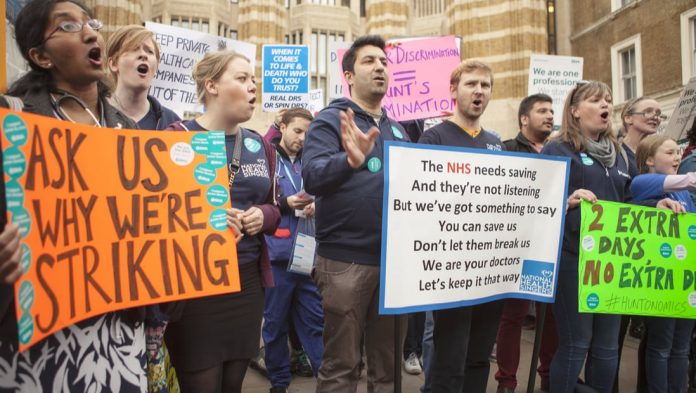The NHS is facing weeks of major disruption at a time when services are already under significant winter pressure, England’s top doctor has warned today.
Junior doctors take strike action from tomorrow (Wednesday) at 7.00am until 7.00am on Saturday (23 Dec). The NHS will prioritise urgent and emergency care as consultants step in to cover for junior doctors, who make up 50% of the medical workforce.
After Christmas and New Year, the longest action ever by junior doctors is also planned from 7.00am on the 3 January to 7.00am on the 9 January, meaning that in the coming three weeks, only four weekdays in the NHS are unaffected by holidays or industrial action.
In more than a full calendar year of action, strikes have seen more than 1.1million inpatient and outpatient appointments rescheduled.
Despite extensive planning and cover arrangements in place, the latest strikes by junior doctors are expected to cause widespread disruption – from the impact on almost all routine care, to an extra admin burden and difficulties with discharging patients.
The NHS is reminding people that they should continue to use services as they normally would when they need urgent medical help – using 999 and A&E in life threatening emergencies.
Professor Sir Stephen Powis, NHS national medical director, said: “These strikes come at a time that will cause huge disruption to the NHS, with services are already feeling the strain of winter pressure.
“When you factor in the Christmas and New Year break, these strikes will prolong that period of reduced activity and it also puts the health service on the back foot into the new year, which is a time where we see demand start to rise significantly.
“Over the holiday period, I would encourage anyone who needs medical help to continue to come forward – in a life-threatening emergency, call 999 and use A&E in the usual way. For everything else, use 111 online.”







